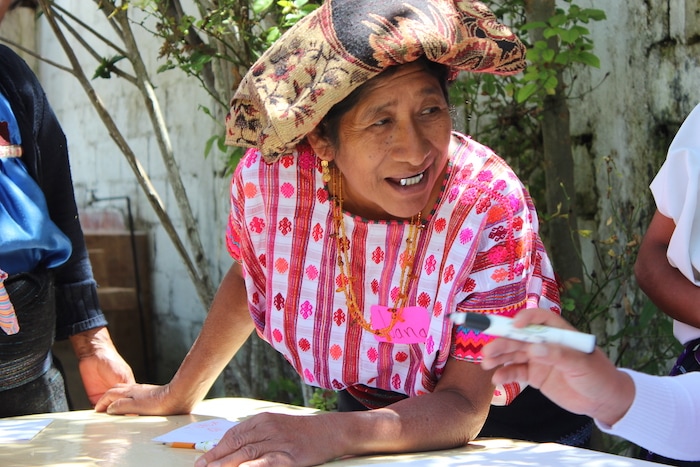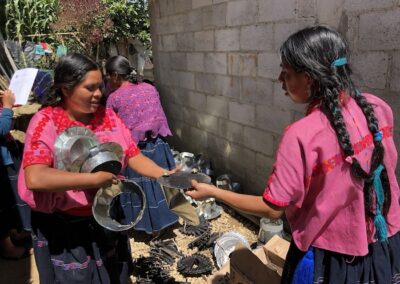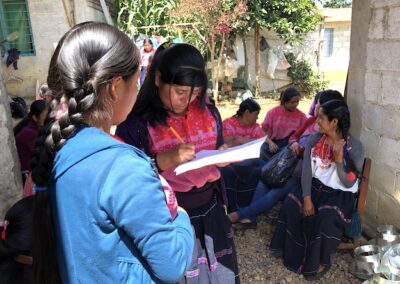Addressing climate change is critical to ending hunger and women play a key role in the solution.
Climate-related disasters such as heat, droughts, floods and storms have doubled since the early 1990s, harming, among other aspects of society, agricultural productivity and thus directly reducing access to food. According to SOFI 2018, drought alone “causes more than 80% of the total damage and losses in agriculture.”
Since the vast majority of people in the rural communities where we work rely heavily on agriculture, their well-being is closely tied to the natural environment. And because women are disproportionately denied access to resources, especially when those resources are scarce, our work highlights in these communities the vital role of gender equality and community-led development in the mission to mitigate climate change and build resilience.
How does gender equity build climate resilience?
Girls’ education and family planning, as explored recently by Project Drawdown, are the most promising solutions to drawing down carbon from the atmosphere and reversing global warming.
Progress in these areas begins with a mindset shift towards agency — emboldening women and girls to weigh in on decisions that affect their lives. When women and girls claim their time, income and leadership opportunities, we see a whole host of outcomes including improved reproductive rights and girls enrolling in secondary school at a significantly higher rate.
When women and girls know that they matter, that they have rights, that they have a say in the most intimate and far-reaching decisions of their lives, the planet benefits in a myriad ways — including a measurable reduction in greenhouse gases.
Deep Dive: The Impact of COVID-19
The social, environmental and economic effects of the COVID-19 pandemic are rapidly changing conditions in communities around the world — especially in those already at risk for food insecurity. Read more about the women leading COVID-response in our partner communities.
How are rural women addressing climate change?
Women and girls with agency drive local climate justice by planting trees, building water catchment systems, developing agroforestry from native plants, keeping their schoolmates enrolled in school and advocating that indigenous values be reflected in local development plans.
In Mexico, empowered indigenous women leaders are confronting climate change head on with concrete solutions — solutions that fully reflect indigenous values for reciprocity, the earth, and all living things.
For example, local women leaders in Chiapas and Oaxaca working with The Hunger Project have brought their agency and their values to solving the problem of inefficient, dangerous cookstoves. These stoves release toxic emissions and perpetuate soil-degrading deforestation when wood is needed for fuel.
Their solution: learning to install and maintain clean ecostoves and then passing that learning on to families throughout their communities — keeping expertise and knowledge in the region. Partnering with Water for Humans, these women leaders install and maintain the stoves for one another and their communities, building self-reliance and directly reducing harm to their local environment.
Not only have the ecostoves reduced pressure on the surrounding forest for wood fuel and improved air quality, they have dramatically decreased the time cost for women and girls who no longer spend hours gathering wood and can instead enroll in school and play leading roles in their communities.
Women are critical to the conversation.
Women and girls with agency, income, time, skills and leadership are not just a side benefit to the work of climate justice — they are central actors in its achievement. We must work hand in hand with women and men to inspire the next generation of empowered women leaders to realize all our global goals.





